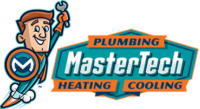
Sewer Line Replacement

Imagine you’re enjoying a peaceful evening at your home when suddenly, you notice an unpleasant odor wafting through the air. As you investigate, you discover that your yard is soggy, and wastewater is pooling around your property. A situation like this means you’ll need to have your sewer line replaced.
Solving the Burden of a Failing Sewer
Owning a home brings joy, but it also comes with its fair share of challenges. One of the most distressing issues homeowners can face is a failing sewer system. Over time, sewer lines can deteriorate due to age, tree root intrusion, or damage caused by external factors. This can result in a host of problems, including:
Ignoring these signs can lead to further damage, potential health hazards, and skyrocketing repair costs. This is where sewer replacement services become essential.
Your Sewer Replacement Experts
When it comes to sewer replacement, MasterTech Plumbing, Heating and Cooling is your trusted choice. Our commitment to excellence and customer satisfaction sets us apart.
Our Sewer Replacement Process
At MasterTech, we follow a systematic service process to ensure your sewer is replaced efficiently and effectively:
Why Trust Our Local Experts
MasterTech Plumbing, Heating and Cooling isn’t just a business; we’re an integral part of the Columbia community. We understand the unique plumbing challenges homeowners face in our area and are dedicated to safeguarding your property.
Advantages of Replacing Your Sewer
Choosing our sewer replacement services offers numerous benefits:
Invest in a reliable sewer system. Contact MasterTech Plumbing, Heating and Cooling today for your sewer replacement assessment.
FAQs on Sewer Replacement
A broken sewer pipe can lead to various noticeable signs and issues in and around your home. Here are common signs to watch for:
– Foul Odors: Persistent, unpleasant odors, particularly in your yard or near drains, can be a sign of a sewer pipe break.
– Slow Drains: Multiple slow or clogged drains throughout your home, even after attempts to clear them, may indicate a sewer line issue.
– Sewage Backup: Sewage backup in toilets, sinks, or drains, especially in lower-level fixtures, is a clear sign of a sewer pipe problem.
– Puddles or Sinkholes: Unexplained puddles or sinkholes in your yard could be caused by leaking sewage from a broken pipe.
– Mold or Mildew Growth: Excessive mold or mildew in your basement or other damp areas can result from moisture seeping out of a damaged sewer line.
– Foundation Cracks: Sewer line leaks can erode soil around your home’s foundation, potentially leading to structural issues and cracks.
– Gurgling Sounds: Strange gurgling noises from drains or toilets when not in use may indicate air escaping through a cracked sewer pipe.
If you notice any of these signs, it’s crucial to address them promptly to prevent further damage and health hazards. Contact a licensed plumber to inspect and diagnose the issue, as sewer pipe repairs or replacement may be necessary.
Tree roots infiltrating sewer lines can be a common problem, leading to blockages and potential damage. To dissolve tree roots in sewer lines, there are two primary methods:
– Chemical Root Killers: Copper sulfate or similar root-killing chemicals can be poured down the toilet or drain. These chemicals work by inhibiting root growth and eventually causing the roots to die off. However, they may take some time to be effective and are not always a permanent solution.
– Hydro Jetting: Hydro jetting is a more effective and lasting method. It involves using high-pressure water to not only clear the roots but also thoroughly clean the inside of the pipes. This method can be performed by a professional plumbing service and is often a preferred choice for severe root intrusions.
It’s essential to consult with a licensed plumber to assess the extent of the root intrusion and determine the most appropriate solution. Additionally, regular maintenance and preventive measures, such as installing root barriers, can help prevent future root problems in sewer lines.
The choice of the best pipe material for a sewer line depends on several factors, including budget, soil conditions, and local building codes. Here are some common options:
– PVC (Polyvinyl Chloride): PVC pipes are a popular choice due to their affordability, durability, and resistance to corrosion and root intrusion. They are lightweight and easy to install, making them a practical choice for many sewer line applications.
– Cast Iron: Cast iron pipes have a long history of use in sewer systems. They are highly durable and can withstand heavy loads and exposure to external elements. However, they are relatively heavy and may require professional installation.
– Clay: Clay pipes are known for their resistance to corrosion and longevity. They are eco-friendly and can last for several decades. However, they are fragile and may be more susceptible to root intrusion.
– HDPE (High-Density Polyethylene): HDPE pipes are lightweight, flexible, and resistant to corrosion and root intrusion. They are often used in trenchless sewer installations due to their ease of handling and durability.
The best pipe material will vary based on your specific needs and circumstances. It’s crucial to consult with a professional plumber who can assess your situation and recommend the most suitable pipe material to ensure a reliable and long-lasting sewer line. Local building codes and regulations should also be considered when making your choice.



